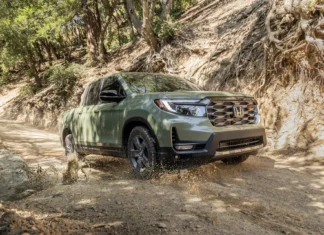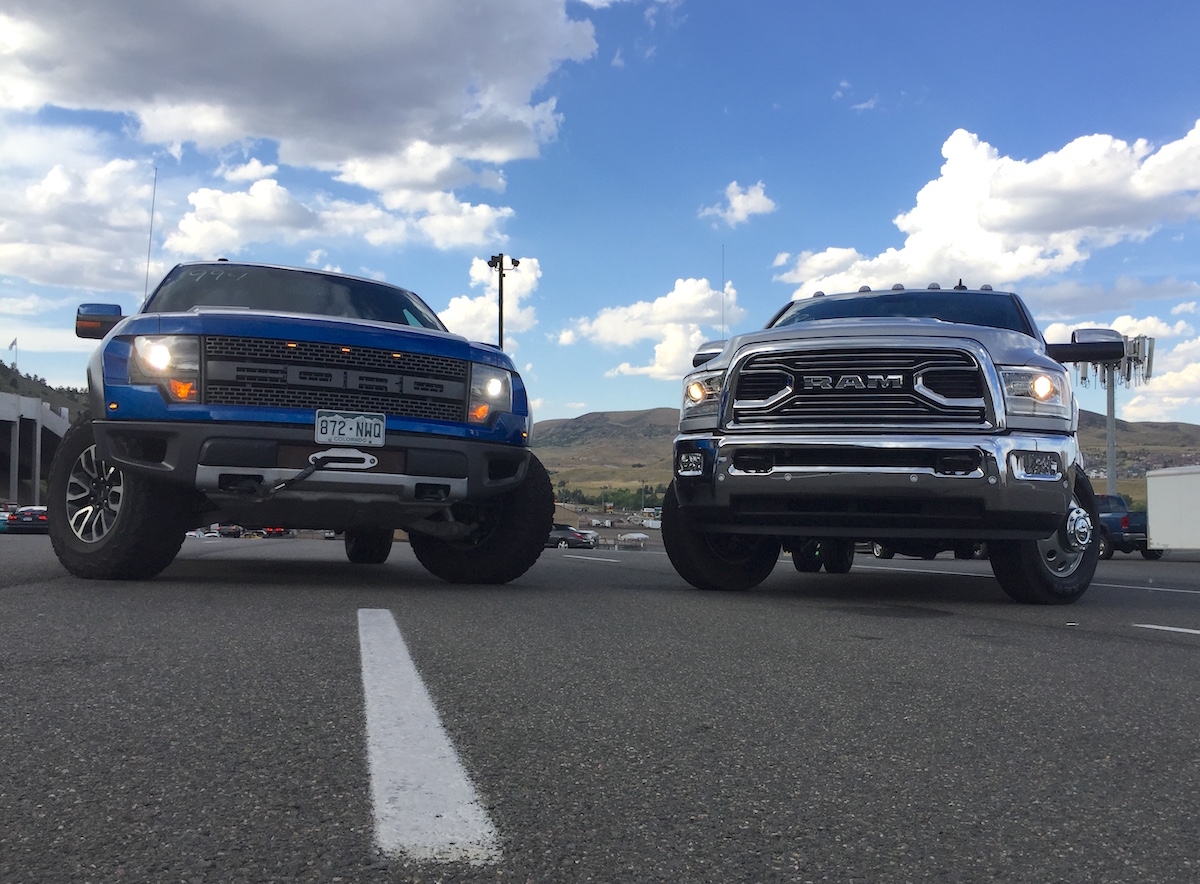SPONSORED CONTENT
Prices rise. Prices fall. But when it comes to buying a used truck, timing isn’t just a matter of market trends—it’s a strategy. So, is now a good time to buy a used truck? Let’s dig into the data, the patterns, and the emotional pulse of the used vehicle market to find your answer.

Use Tools That Tell the Truth About the Vehicle
Before you even start comparing dealerships or scanning weekend deals, there’s one crucial move: verify used truck’s background. Don’t rely on surface-level specs or a polished listing photo. A simple check through the VINCheck service reveals vital data—accident history, odometer fraud, title branding, and more. It’s the only way to confirm the vehicle matches what the seller claims.
Without this check, you risk overpaying for a problem. Imagine driving home with a truck that looks like a gem—but turns out to be a lemon. One hidden salvage title can turn a good deal into a financial pitfall.
Truck Prices Have Shifted—But So Have Buyer Expectations
Just months ago, the used truck market was on fire. Prices hit record highs due to limited new truck supply and rising demand for workhorse vehicles. Many buyers who would’ve considered cars turned toward trucks out of necessity or ambition.
Now? Truck prices are settling. Not crashing—but softening. This shift is opening up windows of opportunity for those waiting for a better time to buy. Many dealerships are balancing aging inventory with fewer eager buyers, which creates room for negotiation and surprise discounts.
How Dealerships Are Reacting to the Cooldown
Walk into a dealership today, and the energy’s different from what it was during the peak. Sales staff have more time. Inventory moves slower. That means they’re more likely to work with buyers—especially those who show up ready, informed, and willing to close quickly.
This is particularly true for mid-range models and trucks with average mileage. Dealers holding out for top dollar weeks ago are now more flexible, especially as they prepare for the next calendar year’s arrivals.
When Is the Sweet Spot? The Best Days to Buy
Statistically, the best time to buy is tied to dealership quotas and holidays. End-of-month and end-of-quarter timeframes can be goldmines. Why? Because salespeople and managers are scrambling to hit numbers, often sacrificing margin to close that last critical sale.
Among holidays, Martin Luther King Jr. Day, Memorial Day, and Black Friday have historically brought notable deals. But you don’t have to wait. The current time period offers leverage thanks to the recent shift in demand, especially after a rush in recent years that left many dealerships with overstocked lots.
Want the best deal? Visit mid-week. Tuesdays and Wednesdays bring fewer buyers, and sales reps are more motivated to focus on your purchase. Avoid busy weekends when competition is higher and pressure tactics are stronger.
Compare Before You Commit: Model, Mileage, and Purpose
Don’t walk in blind. Know your mission. Are you looking for a work vehicle, a weekend toy, or a family hauler that still has truck muscle?
A Ford F-150, Toyota Tacoma, Chevy Silverado, or Nissan Frontier—each caters to different driving needs. Compare specs, towing capacity, payload, and fuel economy. Some older trucks may beat newer cars in long-term value and reliability. Others may hit your wallet hard with repairs.
Mileage matters, but so does condition. A well-maintained truck with higher miles can be a better deal than a low-mileage vehicle with hidden issues.
Why Buying a Truck Feels Different Than Car Shopping
Buying a car and buying a truck are different beasts. Trucks aren’t just transportation—they’re tools, statements, investments. That’s why emotional connection plays a larger role.
For many, it’s not just about paying for a vehicle—it’s about purchasing freedom. Whether hauling gear, towing trailers, or exploring remote trails, trucks enable a lifestyle that compact cars can’t. This emotional value is why trucks remain in high demand—even when prices get rocky.
Yet emotional decisions can cloud judgment. And that’s where confirmed vehicle history and data comparisons turn hope into confidence. Use trusted platforms to search for recent vehicle listings, compare prices, and identify patterns that reveal hidden gems.
Interest Rates and Financing: Should You Wait?
One hesitation buyers face today is interest rates. Yes, they’re higher than they were two years ago. And yes, this affects monthly payments. But here’s the tradeoff: you may pay slightly more on financing now—but spend thousands less on the truck’s actual price if you negotiate well.
Locking in a deal when dealerships are motivated might outweigh waiting for better rates. Besides, if rates dip in a few months, refinancing is always an option.
Let’s not forget: a good time isn’t always about market conditions. It’s about your budget, your needs, and whether you’re prepared to make a smart purchase.
What Makes a Deal a Good One?
It’s easy to get caught up in flashy discounts or low monthly payments. But a good deal on a used truck comes down to more than the price tag. Ask: is this vehicle reliable? Does it match my usage? Am I paying for features I’ll never use?
You don’t want to be paying extra for a fancy trim when a lower model would work just fine. Or worse—missing essential features for the sake of shaving off a few hundred dollars. The value lies in how well the truck supports your daily tasks, not just the sticker.
Seasonal Trends and Weather Impact
Did you know weather can affect truck demand? In colder climates, 4×4 vehicles surge in popularity during winter. Buyers rush to prepare for snow, which means prices spike.
But as the snow melts, inventory moves slower—and that’s when the smart car shopper pounces. Spring and summer often bring trade-ins and leasing returns. This influx gives dealerships incentive to offer better deals to keep the lot moving.
Combine that with fewer buyers during hot months, and it might just be the best time for your purchase.
New Trucks vs. Used: Should You Still Wait?
New trucks are undeniably attractive—fresh features, untouched interiors, zero-mile odometers. But they also come with steep depreciation. A new truck can lose up to 20% of its value in its first week off the lot.
In contrast, a gently used truck offers modern capability without the financial hit. And with many dealerships stocking certified pre-owned options, the line between used and new becomes even blurrier.
Of course, car shopping is never one-size-fits-all. But for buyers seeking both performance and smart economics, used trucks remain a compelling choice.
Tips for Finding the Right Used Truck
Still unsure where to begin? Use this checklist to lock in the best deal:
- Search multiple platforms and compare prices by year and mileage
- Request the full vehicle history report—confirm all service records
- Bring a trusted mechanic to your test drive
- Watch how dealerships adjust their pricing during the calendar year
- Consider local weather and how the truck will perform through seasons
- Don’t rush—wait for the sweet spot when deals align with your needs
Every buyer is different. What matters is choosing the right truck for your course, your roads, your load.
Final Thoughts: Is Now the Time to Act?
So—is now a good time to purchase a used truck?
Yes, if you’re prepared, informed, and watching the signs. Inventory is shifting. Interest rates may not drop soon. And as dealerships look to clear stock ahead of new arrivals, the power is in your hands.
Used trucks are tools, companions, and investments. Don’t treat the purchase like a gamble—approach it like a plan. Confirm history. Analyze data. Time your move.
Whether you’re hauling lumber in the country, navigating city streets, or driving up the mountains, the right truck—bought at the right time—will carry your goals farther than any shiny car on the lot.
FAQ
1. Why are used trucks still expensive compared to cars?
Used trucks often hold their value longer than cars because of their versatility and durability. They’re used for both work and leisure, which keeps prices stable even as they age.
2. Can I get a car loan for a used truck with high mileage?
Yes, but the terms vary. Lenders may set limits based on mileage or model year. Always compare interest rate offers before signing.
3. Are trucks bought during the holidays actually cheaper?
In many cases, yes. Especially around Martin Luther King Jr. Day, Memorial Day, and end-of-year closeouts. These time to buy windows align with manufacturer discounts and dealership incentives.
4. What if the truck was in an accident but repaired?
This is where checking the vehicle’s background is critical. Minor repairs might be fine, but confirm the extent of damage through a VINCheck service and independent inspection.5. Should I wait for better weather or shop during off-peak months?
That depends. If demand is low—say, during extreme weather or right after big holiday sales—you might find deals others miss. Look for those slower weeks in the sales cycle.














![Which is More Reliable: 3.5L EcoBoost or 5.0L V8? [Reader Question] Second-generation 3.5-liter EcoBoost engine](https://tfltruck.com/wp-content/uploads/2016/05/Second-generation-35-liter-EcoBoost-engine.jpg)
![Which Silverado Engine to Get: 5.3L or 6.2L V8? [Ask TFLTruck] 2016 chevy silverado](https://tfltruck.com/wp-content/uploads/2015/10/2016-chevy-silverado-grille.jpg)
